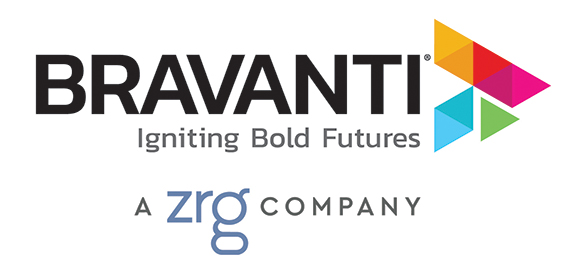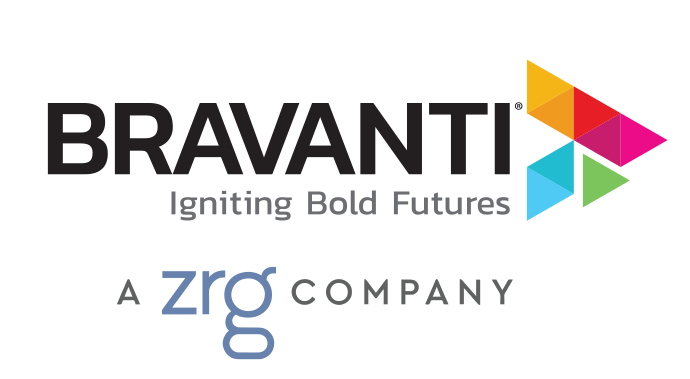Despite uncertainty, forward-thinking organizations are creating a brighter future for everyone
By Bravanti
Key Takeaways
- Employee satisfaction has reached its highest point in nearly four decades, driven by flexible work and purpose-driven leadership
- Companies are doubling down on inclusivity efforts, with shareholders backing these initiatives to the tune of $4.1 trillion
- A wave of entrepreneurship and sustainability-focused innovation is reshaping how we think about business success
Turn on the news, scroll through your feed, or sit in any boardroom, and you’ll likely hear the same refrain: uncertainty, disruption, challenges ahead.
Yes, we’re navigating complex times; economic headwinds, technological upheaval, and shifting workforce expectations have created a landscape that can feel overwhelming.
But here’s what the headlines aren’t telling you: beneath the surface of all this change, something remarkable is happening. Companies are reimagining what success looks like. Leaders are choosing courage over comfort. And employees? They’re more engaged and satisfied than they’ve been in generations.
We’ve always believed that the most transformative moments come not from avoiding uncertainty, but from moving through it with intention and optimism. The data backs up what we see working with our clients every day—organizations that lean into positive change aren’t just surviving; they’re thriving.
Let’s explore six trends that prove the future of work is brighter than you might think.
1. Workers Are Happier Than They’ve Been in Decades
For years, employee engagement felt like a puzzle with missing pieces. Not anymore.
Recent research reveals that worker satisfaction in the United States has climbed to its highest levels since 1987. Think about that for a moment—we’re talking about job satisfaction levels not seen since the dawn of the modern workplace era.
What’s driving this remarkable turnaround? The answer lies in how organizations have fundamentally shifted their approach to work. Flexible arrangements, meaningful work, and leaders who prioritize employee wellbeing aren’t just nice-to-haves anymore—they’re table stakes.
And in Q2, we saw the Employee Net Promoter Score rise to 7.2, with particularly strong gains in technology and healthcare sectors. Workers report higher levels of pride in their organizations and are more likely than ever to advocate for their employers. This isn’t just feel-good news; it’s a competitive advantage that translates directly to innovation, retention, and results.
The challenge? Younger workers aged 18-24 aren’t experiencing this same level of satisfaction, highlighting the need for leaders to understand and adapt to generational differences in the workplace.
2. Continued Commitment to––and ROI from––Inclusivity Practices
While headlines focus on political debates around DEI initiatives, something powerful is happening in boardrooms across America: shareholders are voting to support inclusion efforts by an overwhelming margin.
Despite federal government rollbacks, 81% of employers remain committed to inclusive practices. More telling? Major corporations including Disney, Costco, Visa, and Apple all received above 98% shareholder support for maintaining programs focused on inclusivity—representing over $4.1 trillion in asset value.
This isn’t virtue signaling; it’s business strategy. Organizations understand that inclusive workplaces drive better decision-making, foster innovation, and create products and services that resonate with increasingly diverse customer bases.
Yes, some companies are reframing their approaches—renaming teams, adjusting language, focusing on broader inclusion strategies. But the core commitment remains: building workplaces where everyone feels safe, included, and capable of contributing their best work.
3. Small Business Formation Hits Record Highs
America’s entrepreneurial spirit isn’t just alive—it’s absolutely thriving.
This year has seen over 5.5 million new business applications filed in the United States, a dramatic surge that signals something profound: people believe in the power of their ideas to create positive change.
This isn’t just about starting businesses; it’s about reimagining what businesses can be. Today’s entrepreneurs aren’t just chasing profits, they’re solving problems, building communities, and creating value that extends far beyond financial returns.
This wave of business formation represents optimism in its purest form: the belief that with the right idea, determination, and execution, individuals can create something meaningful that improves the world around them.
4. Consumers Reward Purpose-Driven Brands
The relationship between businesses and consumers has fundamentally shifted, and it’s creating opportunities for companies willing to embrace responsibility alongside profitability.
Today, 92% of buyers trust socially and environmentally responsible brands, a notable shift in buying behaviors that reflect changing values. Consumers are willing to pay a 9.7% sustainability premium, even as cost-of-living and inflationary concerns weigh, and sustainable brands enjoy 32-34% customer loyalty compared to 27% for their traditional competitors.
This isn’t a trend; it’s a transformation. Companies that integrate sustainability into their core business strategy aren’t just doing good—they’re outperforming competitors in growth and loyalty metrics.
Forward-thinking organizations recognize that environmental responsibility and business success aren’t competing priorities; they’re complementary strategies that create lasting value for all stakeholders.
5. Growth of Women and Minority Entrepreneurship
One of the most encouraging trends we’re witnessing is the acceleration of women’s entrepreneurship, particularly among minority women who are driving innovation in high-growth sectors.
Women are leading groundbreaking companies in technology, wellness, and sustainability—industries that will define the next decade of economic growth. What’s changed? Access to funding, tailored mentorship programs, and expansive support networks have reached unprecedented levels.
These factors are ushering in a new dynamic, where diverse founding teams bring fresh perspectives that lead to unexpected innovations. Different life experiences translate into products and services that connect with markets in new ways, opening doors to opportunities that might otherwise go unnoticed.
The ripple effects extend far beyond individual success stories. These entrepreneurs are creating inclusive, community-driven enterprises that prioritize both profit and purpose, setting new standards for what business success looks like.
6. The Shift from Profit-Centered to Impact-Driven
Perhaps the most fundamental shift we’re seeing is how entrepreneurs and established companies alike are redefining success itself.
Today’s business builders are moving beyond vanity metrics and short-term gains to focus on meaningful innovation, lasting impact, and sustainable growth. This represents a maturation of business thinking that prioritizes long-term value creation over quick wins.
Key elements of this transformation include:
- Sustainability as strategy: Companies are integrating environmental responsibility not for optics, but as essential to long-term viability and growth.
- Community-driven branding: Organizations are building trust through authentic storytelling, transparency, and demonstrated social impact rather than traditional advertising approaches.
- Purpose over profit: While profitability remains important, today’s most successful companies prioritize solving real problems and helping people alongside financial returns.
This shift is creating resilient, ethical, and future-ready organizations. From startups that onboard rural artisans to scale globally, to companies that eliminate tons of plastic waste while expanding across continents, we’re seeing proof that doing good and doing well aren’t mutually exclusive.
Moving Forward with Fierce Optimism
Yes, we live in uncertain times. Economic volatility, technological disruption, and social change create challenges that require thoughtful navigation. But these six trends reveal something powerful: when organizations choose courage over comfort, when leaders prioritize people alongside profits, and when businesses commit to creating positive change, remarkable things happen.
At Bravanti, we’re fiercely optimistic about the future of work. Not because we ignore the challenges, but because we see every day how bold companies are rising to meet them. We’re committed to partnering with organizations that don’t just adapt to change—they lead it.
The companies thriving in this environment share common characteristics: they invest in their people, embrace their responsibility to broader communities, and understand that sustainable success comes from creating value for all stakeholders, not just shareholders.
This is the future of work we’re building together—one where businesses serve as forces for positive change, where leaders inspire rather than command, and where success is measured not just by what we achieve, but by what we enable others to achieve.
The trends are clear, the momentum is building, and the opportunities are endless. The question isn’t whether the future of work will be bright—it’s whether your organization will help to create it.
Let’s build a brighter, bolder future—together. Connect with us >

